Gen Z Learning: Distractions and Solutions – Survey Findings
We live in a world that offers fast, advanced, convenient, and accessible learning opportunities. However, it has become increasingly common to hear complaints about poor academic performance among students globally. Convenience has turned into a challenge. How can we address this issue? Let students voice their challenges. Some students recognize their problems, while others do not. We encourage those who are aware of their challenges to share the strategies they use to overcome them.
In light of these considerations, a survey was conducted involving 200 students, consisting of 124 female participants and 76 male participants. The following questions were posed:
- What prevents you from focusing when you study?
2. What methods do you employ to maintain focus and reduce distractions?
- Do you consider yourself a proficient reader? Please provide details to support your response.
The survey findings reflect a broader global trend. This sample encompasses Generations Z and Alpha (ages 0-24), who inhabit a virtual global village filled with both challenges and opportunities. Often referred to as the most distracted generations, they navigate a world where continuous algorithmic prompts encourage rapid clicks, scrolls, and swipes. The struggle to maintain focus while studying seems to be a universal experience shared by students across various regions.
It's important to note that some respondents provided multiple reasons and solutions to the questions posed. Consequently, the total number of responses in some cases exceeded 200, while in other instances, the lack of clear answers led to a total response count of fewer than 200.
What stops you from focusing when you're studying?
The initial question posed to the students was about the major distractions of the students. Based on the responses provided by participants, I have classified the principal distractions and presented them in tabular form as outlined:
distractions and presented them in tabular form as outlined:
|
No |
Reason for distraction |
Number of responses |
|
1. |
Phone |
111 |
|
2. |
Sleepy/tired |
30 |
|
3. |
Friends |
16 |
|
4. |
Noisy environment |
15 |
|
5. |
Hunger/Skipping Meals |
17 |
|
6. |
Overthinking/inner thoughts |
17 |
|
7. |
Difficulty Understanding Subjects/Boring Classes/Not interested in Reading |
14 |
|
8. |
Procrastination/Lack of Motivation/Laziness/Tardiness |
13 |
|
9. |
Health Issues |
2 |
|
10. |
Family and financial problems |
2 |
|
11. |
Homesickness |
1 |
|
12. |
Work or Commitment with Co-curricular activities |
3 |
Insights from a survey of 200 participants reveal key patterns regarding distractions in their lives. A striking 55.5% (111 respondents) point to mobile phones as the main culprit, highlighting their significant impact on attention spans. This underlines the notion that increased online presence correlates with reduced offline engagement. Addressing these concerns is vital not only for academic performance but also for overall wellbeing.
Beyond phones, 15% (30 respondents) cite drowsiness and tiredness, 8% (16 individuals) mention interruptions from friends, and 7.5% (15 individuals) note environmental noise as distractions. Hunger, skipping meals, overthinking, and inner thoughts account for 8.5% (17 individuals each). Academic challenges, such as difficulty in understanding subjects, boredom in classes, or lack of interest in reading, affect 7% (14 individuals). Procrastination, lack of motivation, laziness, and tardiness make up 6.5% (13 individuals).
Less common but noteworthy issues include health problems, family and financial concerns, homesickness, and commitments to co-curricular activities, each identified by 1-1.5% of respondents. In summary, the data showcases a diverse range of distractions.
What methods do you use to maintain focus and reduce distractions?
The second question centred on "What methods do you use to maintain focus and reduce distractions?" The responses, derived from the lived experiences of the students, have been categorized and organized in the table below.
|
Source for staying focused |
Number of responses |
|
|
1. Avoiding phone distractions |
54 |
|
|
2. Choosing/creating a proper, neat, and quiet space |
22 |
|
|
3. Choosing to be alone |
20 |
|
|
4. Self-motivation |
19 |
|
|
5.Listening to calming music |
15 |
|
|
6. Eating snacks or staying hydrated |
14 |
|
|
7.Impact of teacher's motivation |
11 |
|
|
8. Using the Pomodoro Technique |
11 |
|
|
9. Participating in group study |
9 |
|
|
10. Selecting interesting topics |
8 |
|
|
11. Taking notes |
7 |
|
|
13. Focusing on goals |
7 |
|
|
14. Considering deadlines |
7 |
|
|
15. Being time-conscious |
5 |
|
|
16. Studying in a library |
4 |
|
|
17. Practicing self-discipline |
4 |
|
|
18. Choosing appealing reading materials |
4 |
|
|
19. Observing others studying |
2 |
|
|
20. Wearing headphones to block noise |
2 |
|
|
21. Reflecting on parental support |
3 |
|
|
22. Revisiting intentions and remembrance of God |
6 |
|
|
23. Reflecting on relevant examples |
3 |
|
|
24. Listening to Quran |
3 |
|
|
25. Remembering Allah and seeking His help |
3 |
|
|
26. Using background noise (brown/white) |
2 |
|
|
27. Varying study locations |
2 |
|
|
28. Incorporating enjoyable games |
2 |
|
|
29. Reading ahead of class |
1 |
|
|
30. Participating in class activities |
1 |
|
|
31. Ensuring adequate sleep |
1 |
|
The table provides valuable insights into the diverse methods students employ to maintain focus and minimize distractions in their academic pursuits. A significant 30.34% of respondents identify phone distractions as a ubiquitous challenge, addressing it through various measures such as placing the phone in another room, switching it off, activating "Do Not Disturb" mode, or disabling notifications. Additionally, 12.36% emphasize the importance of creating an optimal study environment, considering factors such as cleanliness and quietness.
The psychological dimension of focus is evident, with 11.24% of students opting for solitude to enhance concentration. Self-motivation emerges as a key driver for 10.67% of respondents, highlighting the critical role of individual determination in academic success. The table also reveals diverse strategies, from listening to calming music (8.43%) to employing the Pomodoro Technique (6.18%), emphasizing the personalized nature of focus-enhancing approaches.
External factors play a role as well, with 6.18% attributing focus to teacher motivation and 5.06% finding value in group study dynamics. Conversely, less-adopted strategies include being time-conscious, studying in a library, practicing self-discipline, and incorporating enjoyable games. Observing others studying, wearing headphones to block noise, and focusing on background noise are also strategies used by some students.
Some respondents emphasize the importance of mental and emotional aspects, as seen in initiatives such as "Reflecting on intentions and remembrance of God" (6 responses) and "Remembering Allah and seeking His help" (3 responses). These findings indicate that, for certain individuals, incorporating spiritual and mindfulness practices plays a role in maintaining focus. The data is valuable for educators and policymakers; it underscores the necessity of addressing diverse student needs for fostering conducive learning environments.
Are you a good reader?
The following question inquired about participants' self-evaluation of their reading habits, questioning whether they consider themselves to be good readers or not. Ninety-five respondents claimed to be good readers, while 90 expressed that they are not, and 15 opted for a neutral stance, indicating uncertainty about their reading proficiency.
Positive Responses:
A majority of students attributing proficiency highlighted various factors. Fast content comprehension was a key factor, cited by 31 respondents, showcasing a quick grasp of material. Other positive reasons included creating a peaceful reading environment (5 responses), deriving passion and empathy from reading (1 response), feeling excited and enthusiastic with engaging books (9 responses), considering reading as a personal hobby (9 responses), applying reading in real-life scenarios (5 responses), and the act of reading itself, even if focus is a challenge (6 responses). Additional positive aspects included getting immersed in reading (2 responses), selecting easier books for enjoyment (1 response), expressing a desire to read but lacking sufficient time (1 response), enjoying reading alone (1 response), using reading as a means to improve focus (2 responses), parental motivation (4 responses), finding enjoyment in reading (1 response), and the practice of reading and taking notes (1 response).
Negative Responses:
Conversely, students who perceived themselves as non-proficient readers pointed out several barriers. Laziness (2 responses), skipping pages and only reading a few (4 responses), feeling sleepy or bored (12 responses), difficulty in understanding content (15 responses), taking too much time to finish a book (3 responses), not considering themselves as bookworms (5 responses), easily getting distracted (2 responses), a preference for fiction over non-fiction (3 responses), language proficiency challenges (13 responses), difficulty in finding interesting books (2 responses), a preference for group study over individual reading (1 response), dissatisfaction with reading materials containing only white and black pages (1 response), lack of focus (11 responses), forgetting what was read (2 responses), a lack of passion for reading (8 responses), a middle school focus on science subjects (1 response), and a preference for visuals over text (3 responses)— all these were cited as reasons for considering oneself a non-proficient reader.
The survey results reflect a diverse range of factors influencing students' perceptions of their reading proficiency. Positive responses highlight a strong correlation between proficiency and factors such as quick content comprehension, personal enjoyment of reading, and practical applications of reading skills. On the other hand, negative responses underscore challenges like lack of focus, difficulty in understanding, and personal preferences. Educators and institutions may benefit from considering these factors when designing interventions or support systems to enhance students' reading skills and confidence. Addressing both positive and negative aspects can contribute to a more comprehensive approach to literacy development.
About the author
Dr. Sayyed Mohamed Muhsin is Assistant Professor of Islamic jurisprudence at the International Islamic University Malaysia (IIUM), Kuala Lumpur. He also serves as Editor-in-Chief of Islamonweb-English.
Disclaimer
The views expressed in this article are the author’s own and do not necessarily mirror Islamonweb’s editorial stance.
65 Comments
-

for me, the way I deal with distractions in my studies is to put the phone in my pocket or out of sight and turn on silent mode to reduce checking for incoming notifications. I also have the problem of often falling asleep while studying and the way I overcome it is by drinking plain water to stay hydrated or going to the toilet to wash my face
-

-

My phone is primarily the cause of distraction from studying, as it contains tons of entertainment. Personally, putting aside my mobile phone, while setting it to 'Do Not Disturb' mode is the most effective way of overcoming distraction. A quiet environment definitely helps me focus more, but essentially, organising my time properly for studying, helps me stay on track and manage my priorities better.
-

To help stay focused while studying, I’d set specific "offline" hours without my phone or notifications to avoid getting distracted by social media. I’d also set small goals for each study session, like finishing a chapter or doing a few practice problems, to keep me on track. Using tools like the Pomodoro Technique—working for 25 minutes and then taking a break—could also help. I’d make my study space quiet and organized to avoid distractions around me. Finding a study buddy or joining a group could keep me accountable, and rewarding myself after completing goals would make studying more fun. Finally, doing quick mindfulness exercises, like deep breathing, could help me refocus and stay calm.
-

As a student,i can relate to this article as i easily get distracted when studying.In order for me to overcome distractions,i will usually try to create a clean,organised study environment free from distractions and take regular breaks to refresh my mind & to always be mindful of the time i spend on.In addition,i will try to align my study with purpose and take proactive steps so that i am able to stay focused and avoid distractions.

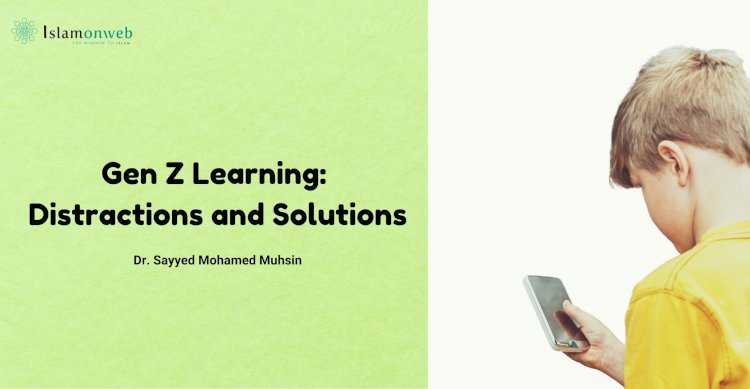


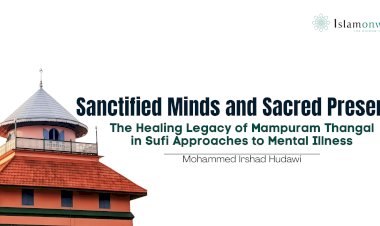
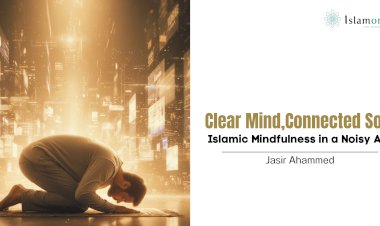
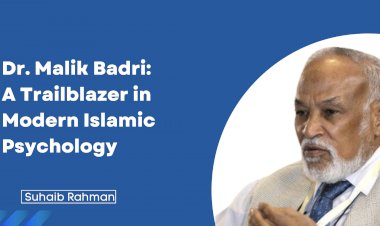
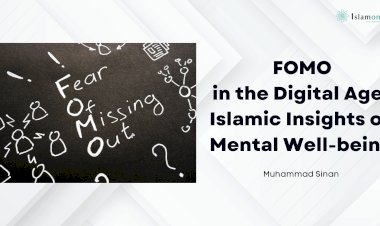

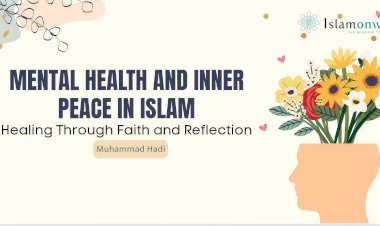














Leave A Comment